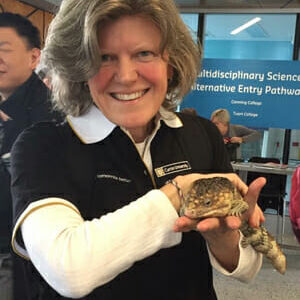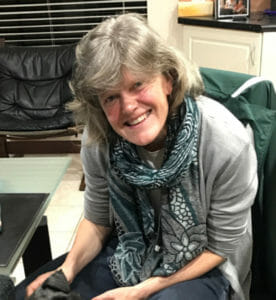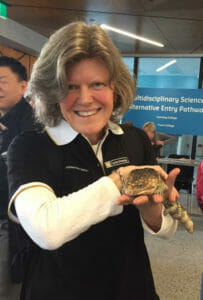
Dal welcomes new provost and vice-president academic
Teri Balser shares what’s in store for the upcoming year
Dalhousie University is welcoming a new provost and vice-president academic on Nov. 1 – all the way from Perth, Australia.

Provided by Teri Balser.
Teri Balser currently holds the position of dean of Teaching and Learning in the faculty of science and engineering at Curtin University. She has years of teaching and leadership experience under her belt thanks to her past ventures at the University of Wisconsin-Madison and the University of Florida.
Balser is also an accomplished academic with a PhD in soil microbiology and 85 peer-reviewed journals.
You might be asking: what exactly is a provost and vice-president academic?
Balser offered an explanation. “The university itself has to be represented to the outside world: the community, politics, and the board of governors [who] oversee the financial aspects of the university. The president is the primary connection between the university and the outside world.”
“The provost links the president to the inside of the university and everything that goes on inside the university. The provost tries to keep things going on the inside, and work with the president to represent us to the outside.”
Balser said, currently, there are no specific goals that the president and the provost are working toward. But there’s a general understanding of what Dal’s goals are. As well as what’s been worked on in the past.
It’s an exciting time of remodelling, modifying, and changing the status quo.
“A lot of schools all over the place are doing more and more with digital and online, and there’s a lot of interest in doing things with international, but we don’t know exactly what that will look like yet,” said Balser.
Expanding the international and online areas at Dal are two ongoing conversations. In her new role, Balser will be at the forefront of these decisions in order to help Dal move forward.
“I’m really excited [to] work with people to say, what interests do you have? Where are your strengths?”

Provided by Teri Balser.
The reasoning behind putting effort into growing internationally, Balser stated, is because “the world is going more global, and people who go out and get jobs, they’re going to want to be able to interface with the world in different ways.” Balser pointed out that Dal already has a fairly strong international presence such as the International Centre. However, she sees the opportunity for expanding Dal’s international ties.
Balser commented on how introducing a more international focus into the curriculum could assist in preparing students for navigating the world outside Halifax and outside Canada. She also discussed the potential for expanding the study abroad program at Dal.
In Australia, Balser said the universities there have what are called “satellite campuses” all over the world with partnering universities. These satellite campuses make travelling and studying much more accessible and open up international relationships for students.
On the digital side of education, a frequent topic of conversation is the number of free courses a school offers online. Balser is interested in looking into whether this option is a good fit for Dal, and whether expanding online will take away from the student experience.
One of the potential benefits from building an online presence, said Balser, is the engaging of alumni. With the courses offered, alumni can continue to learn throughout their lives, and continue to be associated with the university. In this way, Dal would be able to offer services to both current and graduated students.
“We should be thinking about supporting our students and alumni all the way through,” said Balser.






